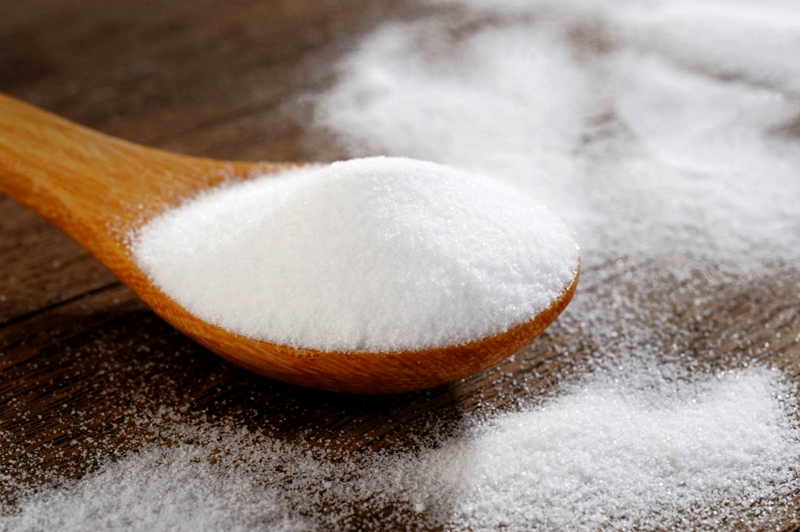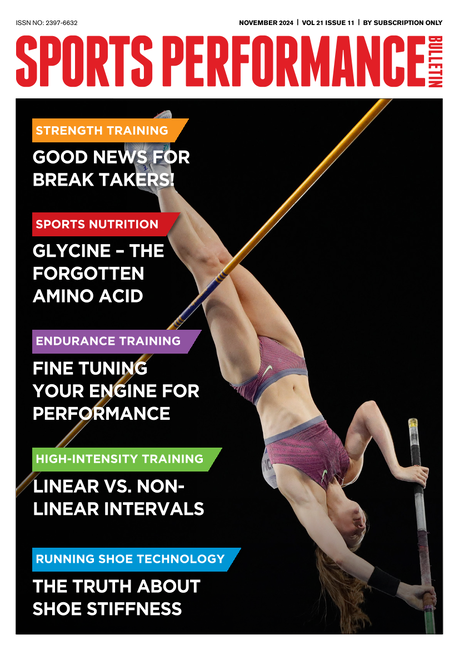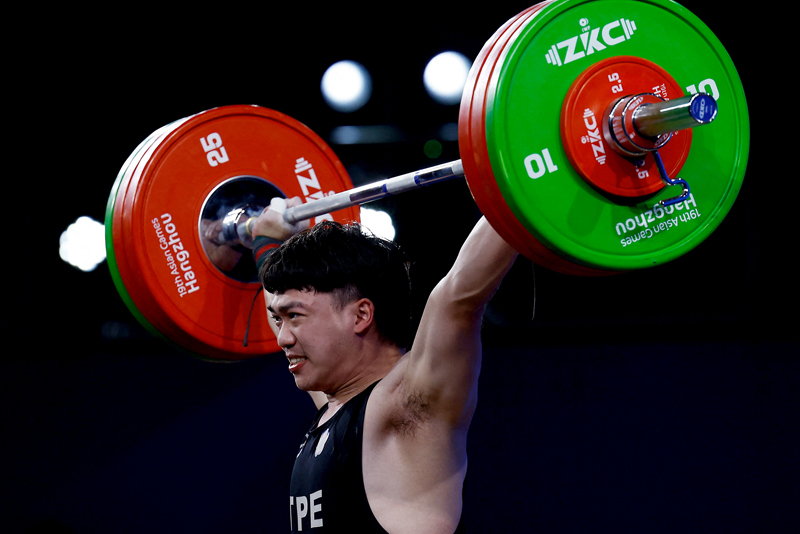You are viewing 1 of your 1 free articles. For unlimited access take a risk-free trial
Lactate supplements: performance enhancers or chancers?

Andrew Hamilton looks at the science of lactate supplementation. Can it really enhance performance?
Most athletes and coaches will probably associate lactate with the burning sensation in the muscles during prolonged, intense exercise. That’s because lactate production in the muscles accumulates rapidly when energy demands outstrip the supply of available oxygen, and (to make good the shortfall) muscle carbohydrate is broken down without oxygen.Lactate as a fuel
However, a lesser known fact about lactate is that once formed, it can actually serve as a source of energy supply to the muscles in its own right via a mechanism known as the ‘lactate shuttle system’. Intriguingly, during this process of oxidising lactate to produce energy, acidic hydrogen ions (protons) are consumed, which can temporarily raise levels of bicarbonate ions in the blood. This has the effect of increasing pH – ie making the blood less acidic – which in theory at least, could help mop up excess hydrogen ions. That’s important because we know that an accumulation of hydrogen ions is a key factor in the physiology of lactate-induced muscle fatigue.Because of these reasons, some sports supplement manufacturers have claimed that taking lactate as a supplement (eg magnesium or calcium lactate) can augment the usual sources of energy in muscle and help buffer (soak up) excess acidity during intense exercise, thereby enhancing performance during high-intensity endurance exercise. But is this actually true?
The science of lactate supplementation
Surprisingly perhaps, there’s been little research into the subject of lactate supplementation. In a 2012 study, US study tested the lactate supplementation theory in cyclists(1). In the study, nine fit recreational cyclists completed three simulated 20km time trials conducted on a cycling ergometer in the lab. The first trial was used merely as a familiarisation trial, while the next two trials compared the performance when the cyclists took either a calcium/magnesium lactate supplement or an inert placebo supplement. Importantly, the study was conducted ‘double blind’, meaning that neither the cyclists nor the researchers knew which supplement was taken in which trial. As well as recording the time taken to complete the 20km time trial, the researchers also measured the cyclists’ average power outputs, heart rates and perceived ratings of exertion.Disappointingly, the results showed there were no performance advantages when the lactate supplement was taken compared to the placebo supplement; the times recorded to complete the trials, the average power output and heart rates were, to all intents and purposes, the same for both trials. Indeed, the time-trial times were actually a little slower when the lactate supplement was taken (39.07 minutes with lactate vs. 38.78 minutes with placebo), although this difference was too small to be considered significant in a study of this size. The only other difference was that rates of perceived exertion were slightly higher in the placebo trial, although the researchers pointed out that this could simply have been due to the fact that the cyclists worked a bit harder in the placebo trial – as witnessed by the slightly faster times recorded in the placebo trial.
In another 2012 study, researchers concluded that ‘the evidence to date has revealed no effects of lactate consumption on time to exhaustion during low- to moderate-intensity exercise, suggesting that it is ineffective as an energy supplement’(2). However they also speculated that these negative results might just be that the doses and timings of lactate ingestion used in the previous studies were not optimum, and that further research might uncover benefits.
Further research
Further research was forthcoming a couple of years later when British scientists investigated the benefits or otherwise of lactate and sodium bicarbonate supplementation (a known performance enhancer during intense exercise) on 40-km cycling time trial performance(3). In a randomized, blind, double placebo-controlled design completed four 40km time trials before each of which they ingested:- Sodium bicarbonate (300mgs per kilo of bodyweight)
- Sodium chloride (a placebo trial for above)
- Lactate (1115mgs)
- Plain flour (placebo for the above)
One of the most recent studies on lactate was carried out by Brazilian researchers(4). In this study, the scientists investigated the effect of chronic calcium lactate supplementation on blood pH, and high-intensity intermittent exercise performance. They also compared it with sodium bicarbonate supplementation. Eighteen athletes participated and the study design was double-blind, placebo-controlled, crossover, and fully counterbalanced – ie the most scientifically rigorous of all designs!
For four days, the athletes consumed 125mgs per kilo of bodyweight of either:
- Lactate
- Sodium bicarbonate
- Placebo
The results showed that lactate supplementation did not affect performance, nor did it affect blood bicarbonate and pH prior to exercise. Sodium bicarbonate supplementation on the other hand significantly improved performance; overall performance was improved by 2.9% with even greater gains (5.9%) when just the 3rd and 4th bouts were analysed. And unlike the lactate, the sodium bicarbonate DID increase blood pH and bicarbonate levels. The researchers concluded that ‘Calcium lactate supplementation was not capable of enhancing high-intensity intermittent performance or changing extracellular buffering capacity, thereby challenging the notion that this dietary supplement is an effective buffering agent.
Recommendations for athletes
To date, only a few studies have been carried on lactate supplementation. A couple of these have hinted at subjective benefits in terms of perceived exertion. However, when it comes to the acid test (no pun intended!) of performance, there’s no real evidence to suggest that taking a lactate supplement provides performance benefits for athletes. If you’re looking to boost your high-intensity performance using nutritional tricks of the trade, you’re better off saving your money and sticking to proven strategies such as carbohydrate/fluid replacement, caffeine and a good diet generally! Sodium bicarbonate is also worth considering, but it can come at a cost of gastric distress if used incorrectly. Readers are directed to this article on the ins and outs of using sodium bicarbonate.References
- J Strength Cond Res. 2012 Apr;26(4):1149-53
- Curr Sports Med Rep. 2012 Jul-Aug;11(4):185-8
- J Strength Cond Res. 2014 Jan;28(1):273-80
- Scand J Med Sci Sports. 2017 Nov;27(11):1231-1239
Newsletter Sign Up
Testimonials
Dr. Alexandra Fandetti-Robin, Back & Body Chiropractic
Elspeth Cowell MSCh DpodM SRCh HCPC reg
William Hunter, Nuffield Health
Newsletter Sign Up
Coaches Testimonials
Dr. Alexandra Fandetti-Robin, Back & Body Chiropractic
Elspeth Cowell MSCh DpodM SRCh HCPC reg
William Hunter, Nuffield Health
Keep up with latest sports science research and apply it to maximize performance
Today you have the chance to join a group of athletes, and sports coaches/trainers who all have something special in common...
They use the latest research to improve performance for themselves and their clients - both athletes and sports teams - with help from global specialists in the fields of sports science, sports medicine and sports psychology.
They do this by reading Sports Performance Bulletin, an easy-to-digest but serious-minded journal dedicated to high performance sports. SPB offers a wealth of information and insight into the latest research, in an easily-accessible and understood format, along with a wealth of practical recommendations.
*includes 3 coaching manuals
Get Inspired
All the latest techniques and approaches
Sports Performance Bulletin helps dedicated endurance athletes improve their performance. Sense-checking the latest sports science research, and sourcing evidence and case studies to support findings, Sports Performance Bulletin turns proven insights into easily digestible practical advice. Supporting athletes, coaches and professionals who wish to ensure their guidance and programmes are kept right up to date and based on credible science.












